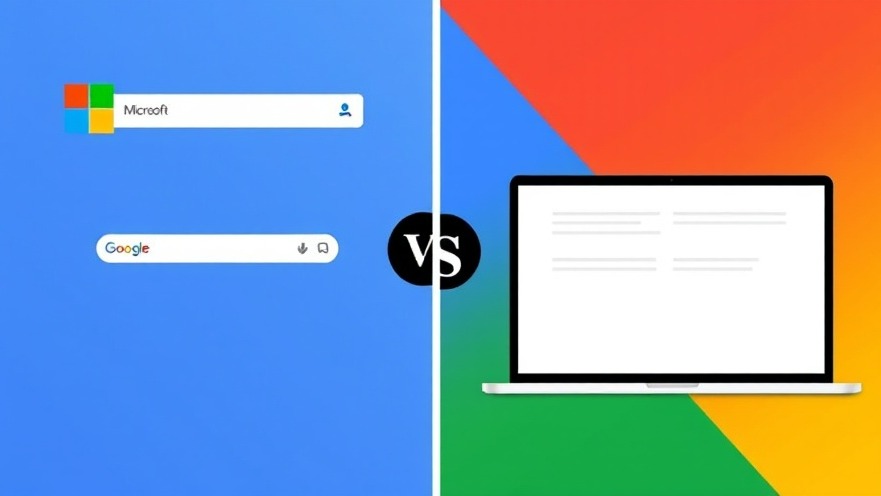
Microsoft and Google Race Towards AI-Enhanced Search
As we venture into 2025, the competition between tech giants Microsoft and Google intensifies, particularly in the realm of AI-enhanced search functionalities. Microsoft has recently rolled out its 'Copilot Search' mode for Bing, a feature designed to streamline the user experience by providing AI-generated summaries of search results rather than the traditional blue links. This development comes on the heels of Google's experimental 'AI Mode,' which seeks to enhance its search capabilities using generative AI technologies.
A New Era of Search: Understanding Copilot Search
The emergence of Microsoft's 'Copilot Search' is not merely an aesthetic update; it represents a significant evolution in how search engines serve information. Instead of displaying a list of links, the new format features an AI-generated summary that encapsulates the query, supplemented by backlinks and options to explore related media such as images and videos. This user-centric design aims to reduce the clutter often associated with traditional search results, making it easier for users to obtain relevant information quickly.
What Does This Mean for Users?
This innovation aims to simplify the way we interact with search engines. By eliminating the need to sift through multiple links, users can now gain insights more rapidly, enhancing their overall search experience. The potential for deeper engagement is fostered by an embedded feature that allows users to pose follow-up questions directly within the search interface. This dynamic format is designed to engage users in a more conversational manner, echoing the functionalities familiar to users of AI chatbots like ChatGPT.
Comparing Features: Microsoft vs. Google
Interestingly, as Microsoft introduces its AI-powered features, Google is simultaneously testing its own 'AI Mode' for Search. This mode also incorporates AI summaries and aims to provide a more integrated experience. However, feedback suggests that while Google's features may offer direct links and comprehensive information, they often feel clunky and intrusive. Browsers frequently encounter inaccuracies in AI-generated responses, leading to skepticism regarding the reliability of information. In contrast, early impressions of Microsoft's Copilot point to a more intuitive interface that nudges users toward trusting its findings.
The Battle for AI Dominance in Search
The launch of 'Copilot Search' is seen as a strategic move by Microsoft to assert its foothold in the evolving landscape of AI-driven applications. As both tech titans explore the potential of generative AI, the industry watches closely to see which features resonate with users. Will Microsoft's user-centered approach gain traction, or will Google's established presence in search continue to dominate despite its operational hiccups?
Future Trends in AI Search Technologies
As both companies continue to refine their offerings, we can expect further innovations that may redefine the way information is accessed online. For instance, enhanced personalization through AI-driven algorithms could soon allow search engines to predict user needs based on behavioral patterns, resulting in even more tailored responses. The implications of such advancements extend beyond convenience; they could fundamentally change how individuals engage with and trust information obtained through search engines.
Takeaway: Embracing the AI Shift in Search
For users and industry observers alike, the emergence of AI-driven capabilities within search engines signals a marked shift towards more intelligent systems. As Microsoft tests its 'Copilot Search' and Google continues refining its AI approaches, understanding the implications of these changes can help users better navigate the digital landscape. Engage with these new features, provide feedback, and notice how your online searches evolve.
 Add Row
Add Row  Add
Add 




 Add Row
Add Row  Add
Add 

Write A Comment